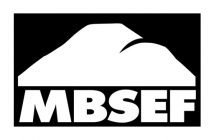As employment-related claims continue to grow and evolve, retaliation has increasingly become a common cause of action, presenting an additional set of challenges for employers. With the Oregon Court of Appeals decision in McLaughlin v. Wilson, issued May 31, 2018, these challenges and the potential for liability associated with retaliation claims will likely become more difficult to successfully navigate.
Section (1)(f) of Oregon’s anti-retaliation statute, ORS 659A.030, makes it an unlawful employment practice to “discharge, expel or otherwise discriminate” against a person for opposing an unlawful employment practice, filing a complaint or testifying, or assisting or attempting to assist in any proceeding under chapter ORS 659A. The McLaughlin decision extends this protection to persons engaging in such protected conduct or activity perpetrated not only by employers, but also to individual employees or “persons” even after the conclusion of employment.
In McLaughlin, the plaintiff was employed as a medical assistant where she assisted the defendant, an orthopedic surgeon. The plaintiff applied for a graduate program at Willamette University and the defendant wrote a letter of recommendation. However, the plaintiff complained a short time later that the defendant began to harass the plaintiff sexually and based on her religion, and the employer commenced an investigation. After she accepted admission to the graduate program and resigned, the employer closed its investigation and the defendant resigned his employment. Shortly thereafter, the defendant made disparaging remarks to an administrator at Willamette claiming the plaintiff routinely made false allegations and ruined people’s careers to obtain settlements. The plaintiff sued the defendant individually, alleging various claims, including retaliation, which was dismissed.
On appeal, the McLaughlin Court reversed the dismissal of the plaintiff’s retaliation claim against the individual defendant, significantly extending the reach and protections against retaliation. First, the court held that ORS 652A.030(1)(f) was not limited only to conduct by employers. Noting that the statute was revised in 2001 by replacing the phrase “any employer, labor organization or employment agency” with “any person,” the court held that co-workers could be liable individually for retaliatory conduct. Second and even more notably, the court held that unlawful retaliation could arise from conduct that occurs after the end of employment, such as negative post-employment references. In circumstances such as those presented where the retaliatory conduct occurred so close in time to when the defendant resigned and were specifically connected to actions during his employment, the court concluded it was appropriate to extend the retaliation protections offered by ORS 652A.030(1)(f).
The McLaughlin decision creates a new layer of potential liability, providing plaintiffs with an additional source of recovery. Employers should therefore carefully and continually educate employees about retaliation and emphasize the unacceptability of any retaliatory behavior or conduct. Employers should also be aware of the conduct and behavior occurring in the workplace and encourage employees to report any potential retaliatory actions. Retaliation claims can present a difficult quagmire that both employees and employers cannot ignore.
Peter Hicks is an employment and commercial litigation attorney at Jordan Ramis PC. He can be reached at 541-550-7900 or peter.hicks@jordanramis.com
This article is intended to inform the reader of general legal principles applicable to the subject area. It is not intended to provide legal advice regarding specific problems or circumstances. Readers should consult with competent counsel with regard to specific situations.





